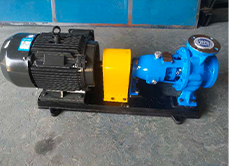Korean
- Afrikaans
- Albanian
- Amharic
- Arabic
- Armenian
- Azerbaijani
- Basque
- Belarusian
- Bengali
- Bosnian
- Bulgarian
- Catalan
- Cebuano
- Corsican
- Croatian
- Czech
- Danish
- Dutch
- English
- Esperanto
- Estonian
- Finnish
- French
- Frisian
- Galician
- Georgian
- German
- Greek
- Gujarati
- Haitian Creole
- hausa
- hawaiian
- Hebrew
- Hindi
- Miao
- Hungarian
- Icelandic
- igbo
- Indonesian
- irish
- Italian
- Japanese
- Javanese
- Kannada
- kazakh
- Khmer
- Rwandese
- Korean
- Kurdish
- Kyrgyz
- Lao
- Latin
- Latvian
- Lithuanian
- Luxembourgish
- Macedonian
- Malgashi
- Malay
- Malayalam
- Maltese
- Maori
- Marathi
- Mongolian
- Myanmar
- Nepali
- Norwegian
- Norwegian
- Occitan
- Pashto
- Persian
- Polish
- Portuguese
- Punjabi
- Romanian
- Russian
- Samoan
- Scottish Gaelic
- Serbian
- Sesotho
- Shona
- Sindhi
- Sinhala
- Slovak
- Slovenian
- Somali
- Spanish
- Sundanese
- Swahili
- Swedish
- Tagalog
- Tajik
- Tamil
- Tatar
- Telugu
- Thai
- Turkish
- Turkmen
- Ukrainian
- Urdu
- Uighur
- Uzbek
- Vietnamese
- Welsh
- Bantu
- Yiddish
- Yoruba
- Zulu
Telephone: +86 13120555503
Email: frank@cypump.com
10월 . 05, 2024 16:38 Back to list
Innovative Pump Solutions for Efficient Wastewater Treatment Plant Operations
The Essential Role of Pumps in Wastewater Treatment Plants
Wastewater treatment plants (WWTPs) play a crucial role in maintaining public health and environmental quality by treating sewage and industrial effluents before they are released back into natural water bodies. At the heart of this process lie pumps, which are essential for transporting wastewater through the various stages of treatment. This article delves into the significance of pumps in WWTPs, their types, and the challenges associated with their operation.
Pumps in wastewater treatment plants are responsible for moving water and sludge from one location to another. This movement is critical not only for the initial stages of treatment but also for the efficient functioning of subsequent processes. The main types of pumps used in WWTPs include centrifugal pumps, positive displacement pumps, and submersible pumps, each serving a specific purpose.
The Essential Role of Pumps in Wastewater Treatment Plants
Submersible pumps are specifically designed to be submerged in wastewater. These pumps are used in applications such as sump pumping or dewatering and are often employed where space is limited. Their design enables them to operate efficiently while submerged, mitigating the need for complex piping systems.
wastewater treatment plant pumps

While pumps are indispensable, they also present several challenges. One of the primary concerns is wear and tear due to the abrasive nature of wastewater, which may contain solids, grit, and corrosive chemicals. Regular maintenance is crucial to ensure optimal performance and mitigate failures. Operators must monitor parameters like flow rates, pressure, and temperature to detect potential issues early. Properly designed maintenance schedules can extend the lifespan of pumps and reduce downtime, contributing to the overall efficiency of the plant.
Moreover, energy consumption is a significant consideration for wastewater treatment facilities. Pumps can account for a substantial portion of a plant’s energy use. Therefore, selecting energy-efficient models and implementing control strategies to optimize operational cycles can lead to significant cost savings while maintaining treatment standards.
Technological advancements have led to the development of smart pump systems equipped with sensors and automation. These innovations allow for real-time monitoring and adaptive control of pump operations, enhancing efficiency and responsiveness to varying wastewater conditions. Such technologies not only improve operational efficiency but also aid in reducing the environmental footprint of wastewater treatment plants.
In conclusion, pumps are fundamental components of wastewater treatment plants, facilitating the movement of wastewater through the treatment process. Their effective operation is vital for ensuring that municipal and industrial effluents are treated to meet environmental regulations before being discharged. With advancements in technology and a focus on efficient maintenance practices, the role of pumps in wastewater treatment will continue to evolve, contributing to sustainable water management solutions in the face of increasing demands on water resources.
-
ISG Series Pipeline Pump - Chi Yuan Pumps | Energy Efficiency&Compact Design
NewsAug.03,2025
-
ISG Series Vertical Pipeline Pump - Chi Yuan Pumps Co., LTD.|High Efficiency, Low Noise, Durable
NewsAug.02,2025
-
ISG Series Vertical Pipeline Pump - Chi Yuan Pumps | High Efficiency, Low Noise
NewsAug.02,2025
-
ISG Series Vertical Pipeline Pump- Chi Yuan Pumps Co., LTD.|High Efficiency&Compact Design
NewsAug.02,2025
-
Heavy-Duty Mining Sludge Pumps - Wear-Resistant Slurry Handling
NewsAug.02,2025
-
Horizontal Split Case Pump with GPT-4 Turbo | High Efficiency
NewsAug.01,2025










